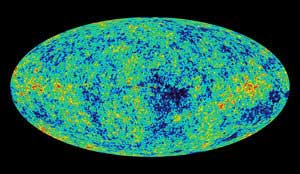Why exactly do we use words like proof or fact then? If the scientific method isn't there to prove anything why is it such a horrific thing to do to question the living stuff out of it? People get into an outrage over it too easily.
Proof and evidence in general conversation mean about the same thing. In science, you can only substantiate an explanation. The more evidence you have for it, the more confident you can be that the explanation represents reality. You cannot /prove/ an explanation because there's always uncertainty.
Furthermore, people do not get outraged when people question science. In fact, skepticism is one of the most integral parts of how science works as a community. Peer-review is where experts in a field criticize the stuff out of a paper until they're sure that it's quality(simplified explanation). Scientists get ticked off when people who don't know how science works make criticisms that don't make sense, like the whole "prove creationism false" argument.
Uh oh, looks like someone from the OPPOSING side has disbelief in its enemies. Of course I don't, because I'm not a Creationist. However, there is a website that actually Lists experiments done by researchers with Creationistic views.
I don't consider creationism as a model to be impossible. It's sure /possible/ that a bearded guy in the sky drove evolution and set all of the evidence for evolution down as a 'trap' to catch non-believers, but how /likely/ is that? The only thing we can know about nature is what we can observe and brown townyze through science. So far, there is no evidence at all that creationism is the explanation for why genetic frequency changes over time in organisms, and I don't /think/ that's going to change soon.
Also, after giving a cursory look over that website, I wasn't able to find any experiments done by researchers that support creationism. If you could send me a direct link to the article, I would be really glad.
A big explosion of the past can't be observed
http://en.wikipedia.org/wiki/Cosmic_microwave_background
Just to clarify, you don't necessarily need to observe things with your eyes and ears. You can use instruments to observe things too far away or too small for your eyes to do the work.